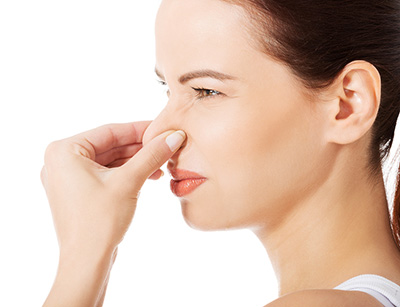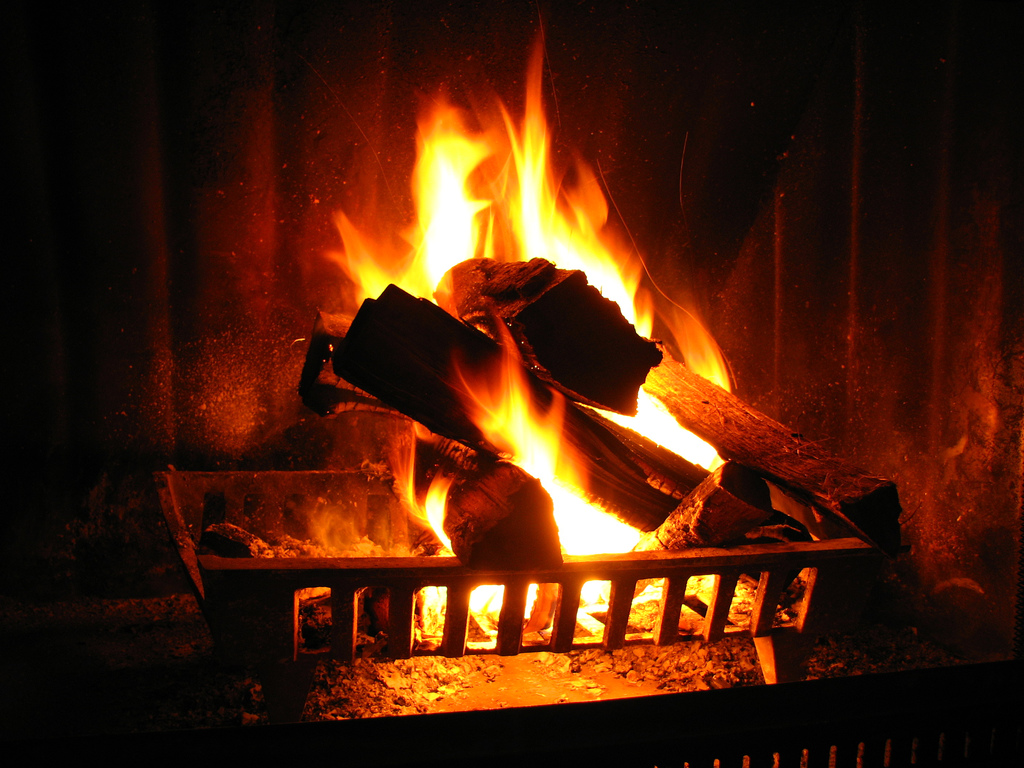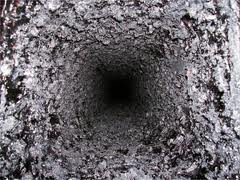Why Is My Fireplace Smelly
Smelly Fireplaces Spell Trouble
by Dave Lamb – dave@mychimneys.com
 Many people complain about an odor that comes from their chimneys even when a fire is not burning or has not been for a long period of time. All fireplaces have some type of odor, but a normal working fireplace will send the smell up and out of the chimney with the draft before it seeps into the home. If you have a smell coming in from your fireplace, it means that air from the outside is being sucked into the room. There are two fixes for this problem, one is to not allow the smelly air to come into the home and the other is to get rid of the smell in the first place.
Many people complain about an odor that comes from their chimneys even when a fire is not burning or has not been for a long period of time. All fireplaces have some type of odor, but a normal working fireplace will send the smell up and out of the chimney with the draft before it seeps into the home. If you have a smell coming in from your fireplace, it means that air from the outside is being sucked into the room. There are two fixes for this problem, one is to not allow the smelly air to come into the home and the other is to get rid of the smell in the first place.
A fireplace inspection and sweep is a good first step to any smell issue, as it will remove excess creosote and rule out other common problems that may have caused the smell. Fallen leaves and rotting animals or animal scat will be found and removed with a chimney cleaning thus eliminating these options as a cause for the smell. While a thorough cleaning and inspection are helpful, they do not always take care of the problem. For issues with creosote, it is difficult to completely remove the build up as it seeps into the stone masonry. Also, moisture problems and air pressure issues may still remain. Therefore other actions must be taken to rid the home of the smell all together. If your fireplace and chimney has not been cleaned in some time, the built up creosote and soot when combined with humid, summer heat and moisture from rain will produce an unpleasant odor as well. Annual chimney sweeping will prevent this build up from occuring.
The two most common causes of fireplace odors are water seeping into the chimney and negative air pressure in the home causing the smells to enter the room rather than leave the chimney through the roof. To first ensure that water is not the problem, check and make sure you have a rain cap covering the top of the chimney flue. Ideally you want the exterior of the chimney to be as waterproof as possible and not allow moisture or humidity into the chimney shaft. Adding a rain cap to the chimney not only prevents against excess moisture in the chimney, but it also provides a barrier to prevent animals and debris from falling into the chimney. While the water issue has a relatively easy fix, solving the negative air pressure problem is slightly more complex.
This negative air pressure can cause odors to enter the home, no matter what the cause. To resolve this issue, you must compensate for what is causing the negative pressure in your home. This problem is more prominent during the warmer months after weatherizing has been done to the home or venting changes and improvements have been made. These all change the air pressure in the home and may cause the negative air pressure that creates the need for additional air to be brought through the fireplace and into the home.
The change in pressure inside the home could come from new furnace installation; windows, dryers, new roofing, bathroom and kitchen exhaust fans, or other similar home improvements. When the home has negative air pressure, more air must come into the home to make up for this and the path with the least resistance is most commonly through the fireplace.
To correct the negative air pressure problem, start by following these simple steps. There are many different ways to do this, but the most effective method is a combination of a couple of the steps until you reach the right balance that stops the smell from being drawn out into the house. Start with the simple solutions.
1. Close the fire damper when the fireplace is not in use. While this will sometimes solve the problem, most dampers are not perfectly sealed, so they problem may still occur.
2. Have a glass fire screen installed to keep the warm air from escaping when there is a fire in the fireplace.
3. A top sealing damper installed onto the top of the chimney that is controlled by a metal chain that hangs down the chimney to the hearth. These can be a huge help in monitoring the airflow.
4. Provide outside combustion air to combustion appliances that cause the unbalance in the air pressure.
 On a cold winter day, the smell of burning logs and the heat from a hot crackling fire creates the perfect combination, but any other day of the year, the fireplace should simply be a fixture to be seen and nothing else. Don’t let an obtrusive smell draw unnecessary attention to your fireplace. Call your local chimney sweep for a professional deodorizing fireplace cleanse.
On a cold winter day, the smell of burning logs and the heat from a hot crackling fire creates the perfect combination, but any other day of the year, the fireplace should simply be a fixture to be seen and nothing else. Don’t let an obtrusive smell draw unnecessary attention to your fireplace. Call your local chimney sweep for a professional deodorizing fireplace cleanse.




